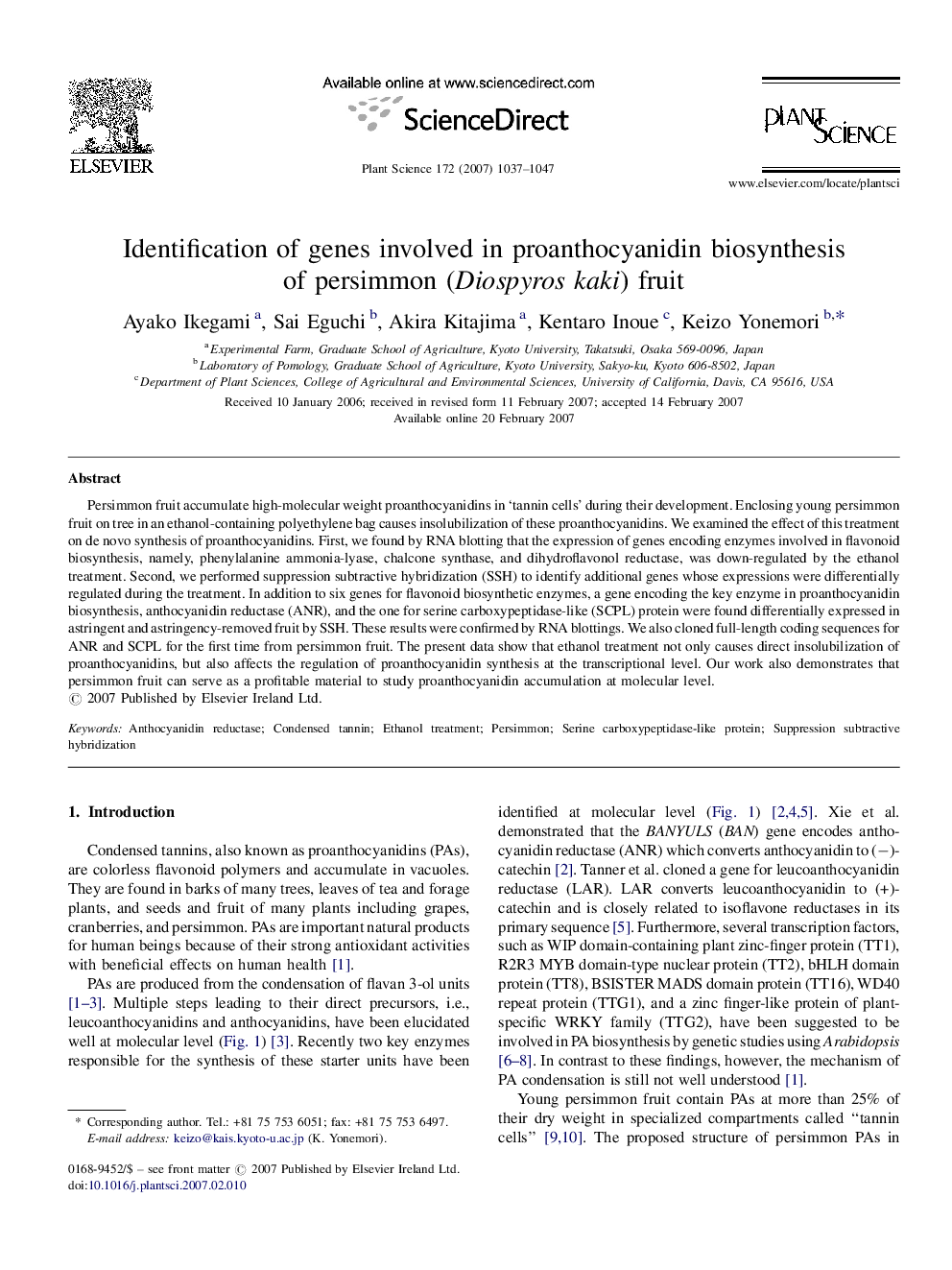| Article ID | Journal | Published Year | Pages | File Type |
|---|---|---|---|---|
| 2018068 | Plant Science | 2007 | 11 Pages |
Persimmon fruit accumulate high-molecular weight proanthocyanidins in ‘tannin cells’ during their development. Enclosing young persimmon fruit on tree in an ethanol-containing polyethylene bag causes insolubilization of these proanthocyanidins. We examined the effect of this treatment on de novo synthesis of proanthocyanidins. First, we found by RNA blotting that the expression of genes encoding enzymes involved in flavonoid biosynthesis, namely, phenylalanine ammonia-lyase, chalcone synthase, and dihydroflavonol reductase, was down-regulated by the ethanol treatment. Second, we performed suppression subtractive hybridization (SSH) to identify additional genes whose expressions were differentially regulated during the treatment. In addition to six genes for flavonoid biosynthetic enzymes, a gene encoding the key enzyme in proanthocyanidin biosynthesis, anthocyanidin reductase (ANR), and the one for serine carboxypeptidase-like (SCPL) protein were found differentially expressed in astringent and astringency-removed fruit by SSH. These results were confirmed by RNA blottings. We also cloned full-length coding sequences for ANR and SCPL for the first time from persimmon fruit. The present data show that ethanol treatment not only causes direct insolubilization of proanthocyanidins, but also affects the regulation of proanthocyanidin synthesis at the transcriptional level. Our work also demonstrates that persimmon fruit can serve as a profitable material to study proanthocyanidin accumulation at molecular level.
